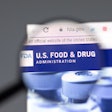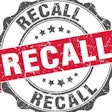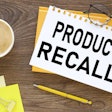In a presentation at the annual meeting of the National Animal Supplement Council a few months ago, a representative of the US Food and Drug Administration made a very interesting comment. He said that in FDA’s attempt to find “legal homes” for the plethora of unapproved ingredients currently on the market, one possibility is for FDA to reconsider the applicability of the Dietary Supplement Health and Education Act (DSHEA) for products intended for animal consumption. I have not heard any more about this possible action, but if DSHEA does become applicable to animal products, it will dramatically alter the current regulatory rubric.
Enacted in 1994, DSHEA drastically changed the way dietary supplements for human consumption are regulated. While still “food” under the Federal Food, Drug and Cosmetic Act (FFDCA), DSHEA defines a distinct subcategory with unique regulatory privileges not afforded other foods. For one, unlike substances in conventional foods, those in a product that meets the statutory definition of “dietary supplement” do not necessarily have to be generally recognized as safe (GRAS) or approved food additives.
Further, claims can be made for a dietary supplement relative to effect on structure and function of the body that do not directly relate to its nutritional content without evoking an intent to offer the product as a drug. For example, under DSHEA, a pill containing the herb echinacea can make claims such as “to support a healthy immune system” even though echinacea is not GRAS and its function is unrelated to its vitamin, mineral or other nutrient content. On the other hand, a chicken soup product with echinacea would be an adulterated food by virtue of it containing an unapproved food additive and possibly even an adulterated drug if the labeling made any functionality claims for that ingredient.
DSHEA prompted a tremendous growth in the dietary supplement market, both for human and animal consumption. However, in 1996, FDA issued a notice in the Federal Register opining that DSHEA did not apply to products intended for animals. The logic was:
- It was neither contemplated nor intended by Congress;
- There is a paucity of data to support safe use;
- It would circumvent requirements to show absence of unsafe residues in meat, milk or eggs of animals consuming the dietary supplement; and
- It would allow for unfair “production claims” (i.e., drug claims).
As a result of the FDA notice, animal dietary supplements remained under the old rules and to this day have to meet the same regulatory requirements as any other animal feed. This in turn prompted the formation of NASC and the development of its unique labeling format for products that do not meet FFDCA.
While not in a formal legal category, “dosage form animal health products” for non-human food chain animals (e.g., horses and pets) labeled per NASC guidance are not subject to oversight by most state feed control officials but rather are tolerated by FDA under enforcement discretion as “unapproved drugs of low regulatory priority.” While this arrangement has worked to the satisfaction of industry and government for years, its long-term survivability is in question as FDA now ponders the wisdom of continuing its current enforcement discretion practices.
If FDA is to revisit the applicability of DSHEA without seeking amendment by Congress, it would have to counter its previous arguments as to why DSHEA didn’t apply. It’s not obvious to me how that would be accomplished. Assuming it is done, however, one effect would be that many of the pet supplement products on the market today could come out of their current regulatory limbo. With clearer guidance as to what is both acceptable and unacceptable for a legally defined dietary supplement (as opposed to a product in unapproved drug status), it would be much easier for manufacturers to comply and regulators to monitor and enforce.
I would assume if this new determination comes to pass, animal products would need to meet good manufacturing practices as required for human dietary supplement products, as well as the need to file notices with FDA regarding intended label claims and use of new dietary ingredients. It’s less clear whether the 1994 grandfather clause in DSHEA for ingredients would also apply to animal products.
Important to note is that if DSHEA is not amended by Congress but simply reinterpreted by FDA, it would appear only to apply to products in supplement form (i.e., dosage form) and not to complete and balanced petfoods or other foods in conventional form. Therefore, there would probably be much stronger incentive for regulators to take action against conventional foods containing unapproved food additives, such as glucosamine and chondroitin sulfate, rather than tolerating them, even under specified conditions as is currently practiced by most states.



















